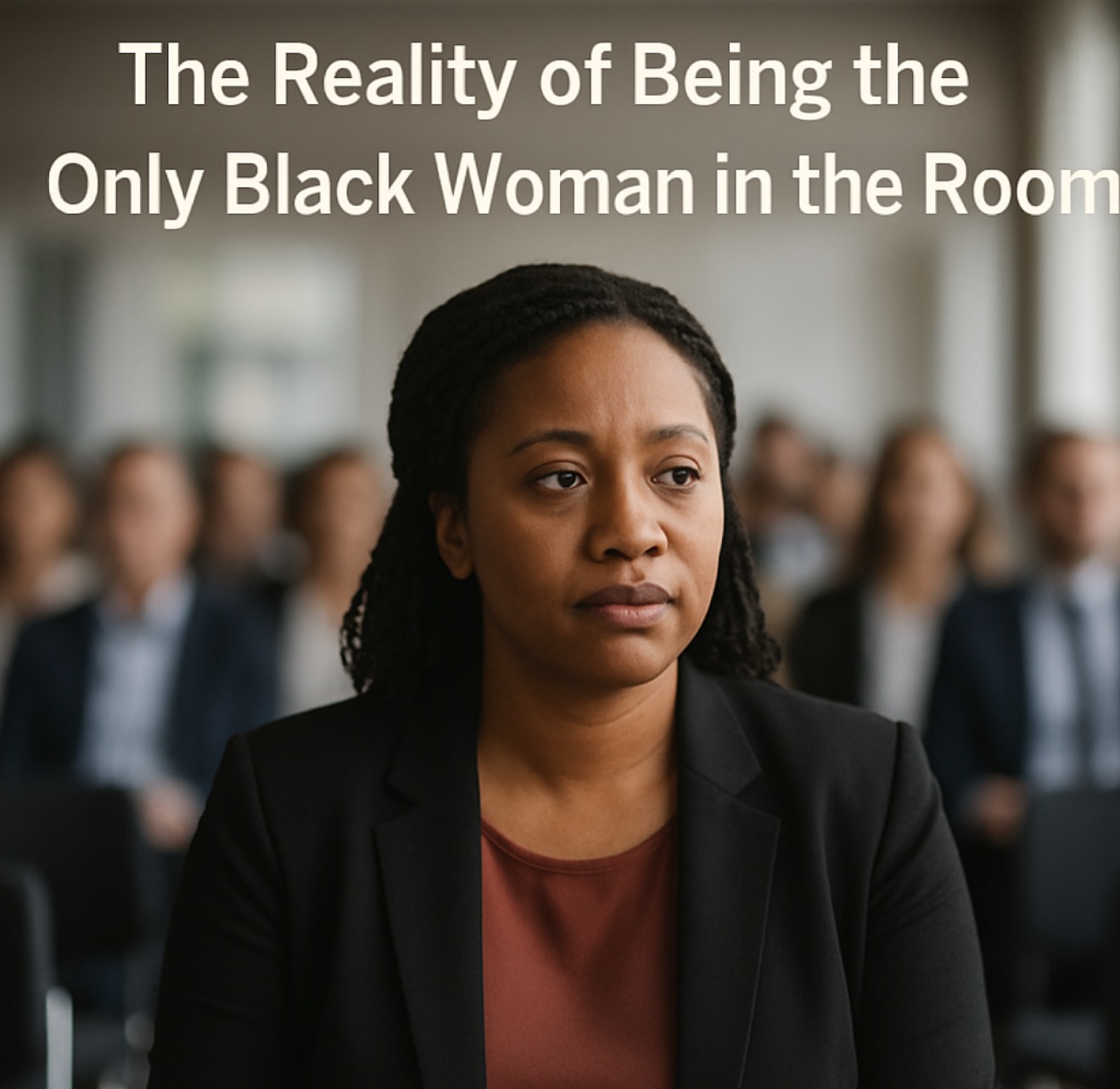
The Reality of Being the Only Black Woman in the Room
There’s a kind of quiet you learn to carry when you’re the only Black woman in the room. It’s not loud. It’s not dramatic. It’s just… always there. A soft awareness sitting on your shoulder, reminding you that every move you make might be interpreted differently.
You learn how to read a room before you even sit down.
You learn how to adjust your tone so you’re not “too direct.”
You learn how to hold your face still when someone says something careless.
And you learn how to excel — not because you want to impress anyone — but because you know that mediocrity is a luxury you were never given.
What people don’t see is the mental gymnastics happening behind your smile.
They don’t see the way you rehearse your point three times before raising your hand.
They don’t see how you become the unofficial spokesperson for “all Black people,” even when you never asked to represent anyone but yourself.
And then there’s the loneliness. Not the “I have no friends” loneliness, but the quiet kind — the kind that comes from knowing no one else in the room shares your lived experience. The jokes don’t always land. The references aren’t always the same. The comfort that others take for granted simply doesn’t exist for you.
But there is also strength in it.
Black women carry a resilience that is stitched into us by the women who came before — mothers, aunties, grandmothers who walked into rooms we were never meant to enter. We inherit their courage, and with it, we make space where space wasn’t given.
Being the only Black woman in the room is heavy, yes.
But it’s also powerful.
Because every time you sit at that table, you are making it easier for the next woman to walk in without shrinking. You are widening the doorway. You are shifting the room simply by being in it.
And sometimes, that has to be enough.



